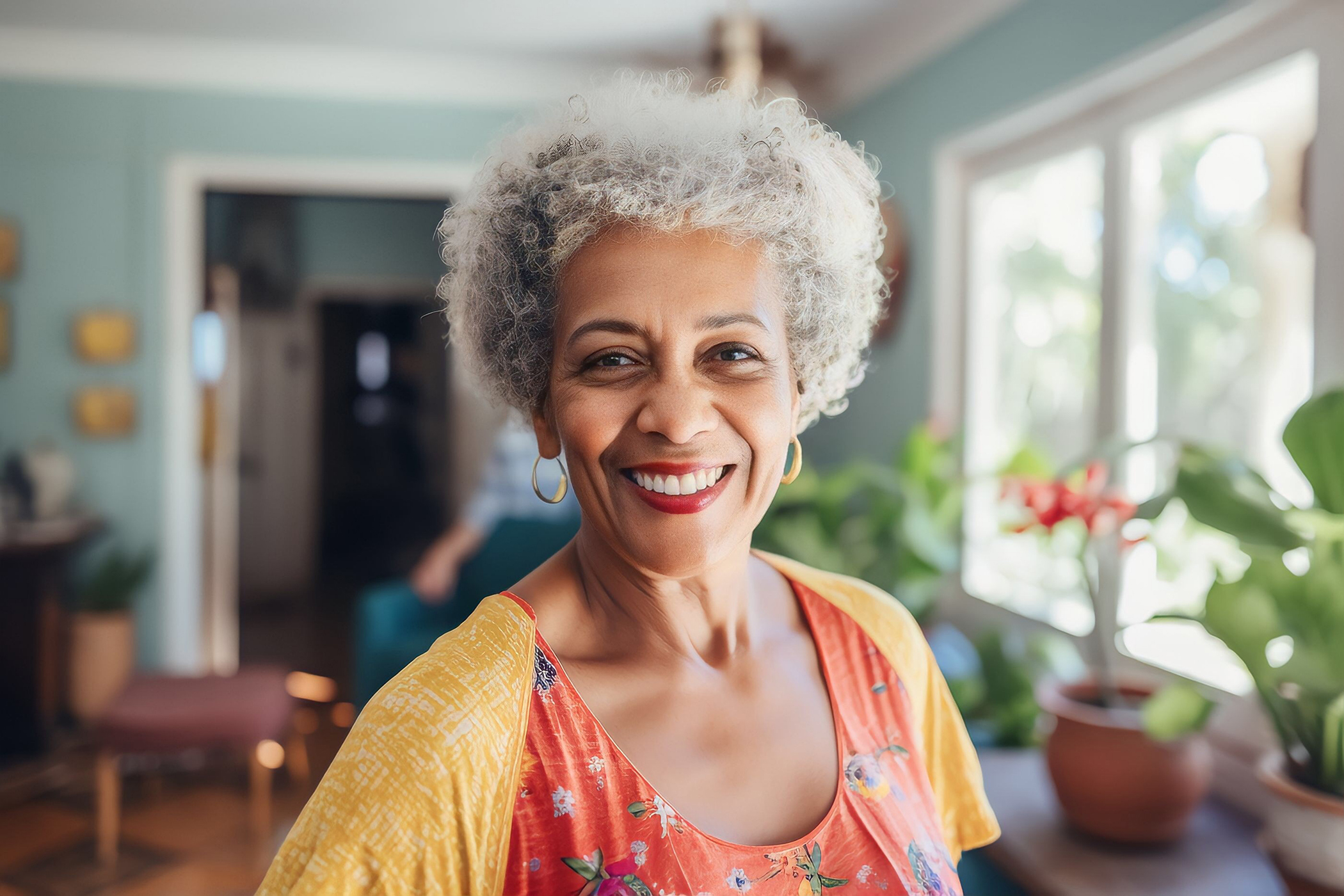Client Story
Mental Health Awareness Month

May is Mental Health Awareness Month, where we recognize the importance of destigmatizing mental health and normalizing prioritizing mental health care without guilt or shame.
The growing population of older adults makes us especially aware of the unique mental health challenges faced by this population. There is a close correlation between our mental health and physical health. As we age, our physical health may decline, which can adversely affect our mental health.
In fact, approximately 14% of adults aged 60 and over live with a mental disorder, with the most common being depression, dementia, and anxiety. Older adults also have one of the highest rates of suicide. Global Health Estimates (GHE) 2019 shows that globally, 27.2% of deaths from suicide are among people aged 60 or over.
PEARLS – Program to Encourage Active and Rewarding Lives – is helping to address the increasing number of older adults living with depression and isolation. A collaboration between The Women’s Center and the Tarrant County Area Agency on Aging, PEARLS is an evidence-based treatment program designed to significantly reduce depression and isolation—helping older adults develop the skills they need for self-sufficiency and independence, which supports more emotionally fulfilling, active lives.
The program was the first of its kind in Texas and has evolved to meet growing demand locally. Since its inception, PEARLS coaches have seen more than 670 older adults in Tarrant County. Services are provided to residents who are 60+ at no cost to the client. PEARLS coaches meet one-on-one with older adults for six to eight one-hour sessions, typically over the course of four to five months, beginning with weekly sessions that gradually taper to monthly. Each session is focused on identifying challenges, setting goals and working towards solutions. The program helps clients feel empowered to manage depression, improve social connections and encourage positive thinking.
Client Joann is a great illustration of what many older adults experience in the program. When she came to The Women’s Center, she was in extreme pain due to scoliosis, she’d just lost her beloved pet, and had little to no support system as her family lives out of state. Raised in a home where her father sold drugs, she grew up in an environment filled with violence, dysfunction, and abuse, which had a lasting negative impact on her emotional well-being. She was depressed and actively suicidal, worried she might overdose or leave the car running in the garage.
Joann recalls her first contact with The Women’s Center. “I couldn’t stop crying. I remember calling and saying, ‘I have an emergency, I need help! I won’t be here a month from now so I need help now. They helped with crisis intervention. Then, I started PEARLS!’”
She began working with her PEARLS counselor, who encouraged her to set specific goals, such as developing a local support system, starting physical therapy to help with her back pain and finding ways to introduce joy into her life. “I was able to join a new church, where I started the senior exercise classes and made friends. I started physical therapy, and I treated myself by listening to more uplifting music and going outside more often.”
Therapy has helped her overcome her childhood trauma. And, today Joann is an active member of PEARLS Connect, an alumni group of PEARLS clients, where she’s found a new network of friends. “There is something so refreshing about a group of older women getting together to enjoy each other’s company, no holds barred and speaking what’s on their mind. It’s absolutely exhilarating! The first time, I laughed so hard my sides ached.”
“Starting therapy has been one of my greatest joys. Thanks to The Women’s Center, I was able to make some decisions that changed my life like having back surgery to ease the pain. I joined a new church where I made new friends and started a new healthy relationship, and now I have a new husband! My life today is so wonderful from what it was when I started, a complete 180 degree turnaround. I used to keep the blinds closed all the time, but now I want the sun shining in. I see the light at the end of the tunnel, that there is hope.”
Sources:
